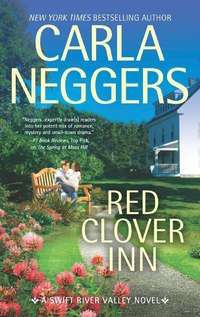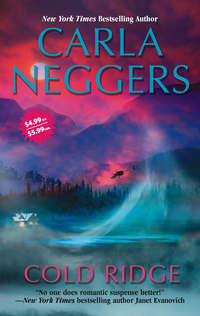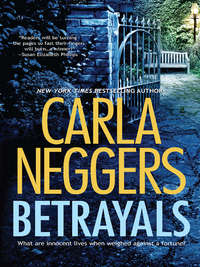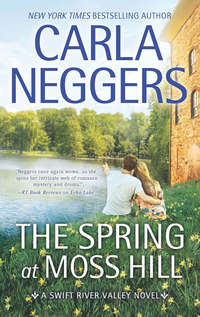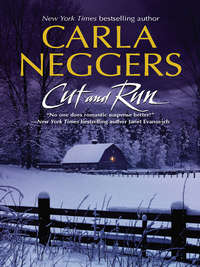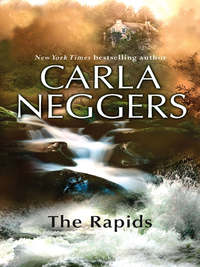
Полная версия
Heron's Cove
“It’s not as bad as it looks.”
“You could have said something before we—”
“Trust me, sweetheart, I wasn’t thinking about my aches and pains while we were making love.”
“There are more bruises?”
“A few. I heal fast. Being back here helps.”
“They were trying to kill you—”
“Not when they hit me. They were just trying to get me into their car, show me they were in charge. They disagreed on killing me.”
“They knew you were a federal agent,” Emma said.
“By then, yes. They thought I was playing both sides and was willing to sell them weapons at a cut rate.” Colin thought a moment, then said, “Yank is getting the go-ahead to involve the team, but there were three men. Pete Horner, a private pilot out of Florida. He flew planes for Bulgov but wasn’t one of his regular pilots. He wanted to wait to kill me.”
“The other two?”
“Russians. Yuri and Boris. They wanted to kill me right away. Yuri is in his late forties, with short, thinning gray hair and blue eyes. Boris is younger—maybe thirty. Medium brown hair, brown eyes. Good-looking. Yuri’s kind of flat faced.”
Emma sat up slightly. “You’re describing them to me because you think I might recognize them.”
“Do you?”
“No.”
“They could be anywhere. They could have split up, or they could still be together. They could have new IDs. Another boat. They could have had a car or a plane waiting for them. I had to bail too soon—”
“It sounds as if you bailed in the nick of time.”
“You mean before they fed me to the alligators?”
She gave him a faint smile. “Your sense of humor is a coping mechanism.”
He leaned in close to her. “What’s funny about alligators?”
“Do they believe they could force you to get them weapons?”
“Hard to say. They want to be arms merchants. They have contacts, resources, funds—seed money, Horner calls it.”
“Will their buyer be mad at them for not coming through with weapons?”
“Oh, yes. Very mad.” Colin realized suddenly how much he appreciated her approach to a problem. “I made it easy for Horner by turning up with orphaned weapons that I wanted to unload.”
“They knew you didn’t want a career as an arms merchant,” she said. “Just a profit. Everyone has good reason to be mad at you. Horner, the Russians, their buyer. Are they the type to exact revenge?”
Her skin was warm, as soft as anything Colin had touched in a month. “They’d have to find me first,” he said.
“And they don’t know who you are.”
“That’s right, they don’t—unless your source tipped them off.”
“My source isn’t one of them. I can tell you that much.”
“Did you break rules to find me, Emma?”
She let her fingertips drift over his chest. “I would have.” She looked up at him, her eyes as green as he’d ever seen them. “But I didn’t need to.”
“Why not?”
“You’re good at undercover work.”
It wasn’t an answer. Colin saw that she knew it, too, but he didn’t care. Not right now. He kissed her, then let the curve of his hand drift over her smooth, cool skin. “I’m good at this, too.”
6
LUCAS SHARPE SLOWED from a run to a light jog as he entered St. Stephen’s Green, a welcome oasis in the heart of Dublin. The lush greenery, flowers, statues and fountains were dripping as much as he was, if only from the early-morning rain and not a mixture of rain and sweat. He had pushed himself hard on his five-mile run. Nothing like an enigmatic, irritating email from his one-and-only sister to propel him into the Irish rain in sweats and running shoes:
I need everything you and Granddad have on London jewelry designer Tatiana Pavlova and her interest in the Rusakov collection. I’ll call tomorrow.
Btw, Colin is back.
Hope you’re enjoying Dublin,
Emma
She had sent the email at 8:00 p.m. Maine time, 1:00 a.m. in Ireland. Lucas had picked it up when he had awakened at seven in the spare bedroom of his grandfather’s Dublin apartment. Checking messages first thing, before he even crawled out of bed, was a habit he was trying, with limited success, to break. Given the five-hour time difference, there was even less point to diving onto his iPhone at first light in Ireland than in Maine, where at least he could rationalize that he wanted to stay abreast of what was going on in Europe.
As it was, by the time he read Emma’s email, it was the middle of the night on the U.S. East Coast. He would have to wait several hours before he could call his sister for more information.
Was Emma referring to Russian tycoon Dmitri Rusakov?
“Bloody likely,” Lucas muttered, jogging past a curving ornamental pond, ducks grooming themselves in the rain-soaked grass.
He slowed to a walk on a meandering path that led to a gate on the east end of the iconic green. The rain had let up but he was already soaked to the bone. Dublin was quiet so early on a drizzly Sunday morning. He crossed the normally busy street and continued into the heart of residential Georgian Dublin where his grandfather had lived for the past fifteen years.
Three days ago, Lucas had seized on the disruption of the renovations at the Sharpe house in Heron’s Cove as an excuse to fly to Dublin. He had barely had time to adjust to Irish time and get over jet lag before he had received Emma’s urgent message.
Having a sister who was an FBI agent had its drawbacks, but Lucas didn’t doubt that she was as concerned about their grandfather as he was. Ostensibly Lucas was in Dublin to check out the status of the Sharpe Fine Art Recovery office there, but he was also checking out the status of his grandfather. His health, his well-being, his plans for the future.
Easier said than done with an independent-minded old codger like Wendell Sharpe, Lucas thought with a sigh of exasperation.
He came to the narrow brick town house where his grandfather had an apartment. Born in Dublin, Wendell Sharpe had been just two when he had left Ireland with his parents for Boston. They soon moved to southern Maine, where his father had worked as a property manager and his mother as a domestic at large summer homes. Wendell had started out as a security guard at a Portland museum, ultimately finding his calling in investigating and recovering missing fine art and antiques.
His decision to open a Dublin office and return to Ireland had been a surprise, but it had also worked out well. At first, his only son—Lucas’s father—had run the Heron’s Cove office. Then a fall on the ice landed Timothy Sharpe in chronic pain, and bit by bit Lucas took over.
Now in his early eighties, Wendell, a widower for almost two decades, was giving up day-to-day work in the business to which he had devoted his life and edging into retirement, or at least semi-retirement.
Lucas went around back and ducked through a gate onto the terrace and into the kitchen. It was past eight but still no sign that his grandfather had yet rolled out of bed. Lucas was dying for coffee but returned to the small guest room and stripped off his wet clothes, leaving them in a heap on the tile floor. He pulled on a robe and headed for the apartment’s only bathroom.
A hot shower, shave and dry clothes didn’t ease his tension.
He headed back to the kitchen, filled the electric kettle with tap water and plugged it in. He dumped loose-leaf Irish Breakfast tea into an earthenware pot for his grandfather and fresh-ground beans into a glass coffee press for himself. By the time he had tea and coffee steeping, his host entered the kitchen dressed in dark gray wool trousers, a crisp white shirt, black vest and red bowtie.
“It’s Sunday, Granddad,” Lucas said.
“I thought I might go to church. Don’t worry. The rafters won’t cave in. I’ve been going more frequently in recent months.”
Lucas was worried, although not about his grandfather’s churchgoing habits. “I just don’t want you to be depressed,” he said, loading the tea, coffee, plates, silverware and a basket of toast onto a tray.
His grandfather looked mystified. “Depressed? Why would I be depressed?”
“Sometimes there’s not a reason. It just happens. Come on. The rain’s stopped. Let’s have breakfast outside.”
Lucas carried the tray and Wendell grabbed a towel to dry off the chairs and two-person round table on the small brick terrace. The sun broke through the clouds as they sat across from each other. They were both lanky and blue-eyed, but any resemblance ended there. Except for her green eyes, Emma favored their grandfather more than Lucas did.
He watched his grandfather butter a piece of toast with a steady hand. For all his expertise in fine art, Wendell Sharpe lived simply. The only art he owned was by contemporary artists and craftspeople, mostly Irish, whose work appealed to him for whatever reason. He didn’t care about critics, reviews, whether a particular work or particular artist would ever end up in a museum or prized by discerning collectors. He just bought and bartered for what he liked. His lack of snobbery, combined with his knowledge, experience and extensive contacts, made him a formidable, insightful expert in art theft and recovery. He could see, think and feel what others couldn’t or overlooked because of their blind spots and prejudices.
Lucas wanted to follow in his grandfather’s footsteps, but he knew, too, that he had to carve out his own path. And he was just thirty-four. Wendell did have a few decades on his only grandson.
Wendell took a bite of toast and poured tea. “What’s on your mind, Lucas?”
“Do you know a London jeweler named Tatiana Pavlova?”
“No, I don’t, but that’s a Russian name. Why? Who is she?”
“I don’t know. Emma sent an email last night asking about her. She said she’d call today.” Lucas poured his coffee, appreciated its heat. “She also wants anything we have on the Rusakov collection.”
“The Rusakov collection?” Wendell went still, knife and toast in hand. “You’re sure?”
Lucas nodded. “I’m sure. You can read the email if you’d like.”
“No. I don’t need to read it.” He set his toast on his plate and glanced at the sky, the sun back behind the shifting gray clouds. He seemed to give himself a mental shake, then picked up his teacup and focused again on Lucas. “What else did Emma say?”
“Colin Donovan is back.”
“I met him in September when he and Emma were in Ireland chasing that killer. Good-looking fellow. All the Donovans are.”
“I didn’t realize you knew them,” Lucas said, already wishing he’d made more coffee.
“They’d come by the waterfront from time to time, mostly in a lobster boat. I’d wave. They’d wave. That was the extent of it. They were teenagers. I was old even back then. Their father was a town police officer.”
“Did you think Colin would become an FBI agent?”
“No, I thought he’d become a lobsterman. I’m better at figuring out art thieves than I am at figuring out law enforcement officers. They surprise me every time. Look at Emma. You said Colin’s back? Where did he go?”
“Washington, supposedly. I don’t think that’s the whole story. I think he was in trouble.”
Wendell nodded thoughtfully. “I suspect trouble’s a way of life for Colin Donovan. As it’s becoming for Emma, I fear.”
“They’re FBI agents, Granddad. It’s their job to look for trouble. What about this collection? Does it in fact belong to Dmitri Rusakov?”
Wendell shifted in his chair, a ray of sunlight catching his thinning white hair. “I haven’t been back to Maine in far too long. How is life there?”
“It’s fine,” Lucas said, not hiding his impatience well. “Granddad—”
“I’ll recognize the house when you’re finished with it?”
“Yes. I’ve worked with an architect and designer to make sure we keep its character. My main focus is modernizing the offices. You’ve seen the drawings.”
“The apartment will be ready by winter?”
“Yes, but you have a place to stay in Heron’s Cove anytime you want to be there. You know you can always stay at my place. And you’ll love the apartment when it’s done. I promise.”
“I know I will, Lucas,” Wendell said, pouring himself more tea. “I’m physically and mentally fit for a man my age, but I can’t help but feel that moving back to Heron’s Cove will mean I’m about to die. People will take it that way, though. Mark my words.”
Lucas felt a spray of drizzle and sat back, wishing now he’d stayed inside and turned on the Irish news instead of trying to have a conversation with his grandfather. Coffee first. Then talk of going home to die.
The rain didn’t develop, and the sun popped out again.
Finally Lucas said, “Granddad, if you’re having second thoughts about retiring, we can work something out. You’ll still be a consultant but if you miss going into an office, there are options.”
“I know, I know.”
“And there’s a difference between retirement and death, you know.”
His grandfather gave a wry smile. “Yes, I do know, Lucas. What about you? You never thought you’d be running the show at your age. You thought you’d have more time to sow your wild oats.”
“Dad’s accident changed all that.”
“And Emma,” Wendell said. “The convent, the FBI. We thought you would share the responsibility of running the business with her.”
“It’s all worked out. Dad’s still a valuable asset to the business even if he can’t run it. Mom, too.”
With another sigh, Wendell ate his toast, drank more of his tea. “Your father’s strength was always research and analysis. He and Emma have that same ability to dig into something and see all the pieces and how they might fit together.”
Lucas again reined in his impatience and focused on enjoying his coffee and toast. He could feel his run in the backs of his thighs. He had pushed too hard. He could blame jet lag, but he didn’t. He blamed Emma’s email, and his grandfather’s attempt to deflect the questions about Pavlova and Rusakov—and his melancholy mood. Lucas had hoped that his presence in Dublin would be a boost for his grandfather. Instead, he was just another reminder that Wendell Sharpe had more days behind him than ahead of him. Transferring what he knew—what wasn’t in the files—to his grandson drew him into the past and underscored that he was at the end of a long and storied career.
“I don’t know what the next chapter will be for me,” Wendell said, buttering his last triangle of toast, “but it’ll be short.”
“Granddad, that’s morbid.”
He shrugged. “It’s true.”
“You could live to a hundred-and-five. That’s more than twenty years.”
“I shudder at the thought.” He winked. “It’s all right, Lucas. I’m not about to leap off the Cliffs of Moher. In fact, I’ve decided to take a sort of walkabout on the southwest coast.”
“Of Ireland?”
“Yes, of Ireland. Of course.”
“It’s late October, Granddad.”
“The weather’s fine. There’ll be rain, of course, but the days are getting shorter. I’ll just have to find my way to a pub once it gets dark.”
“When will you leave?”
“As soon as you do. I presume you’ll be going to London to look into this Tatiana Pavlova. Ah, Lucas.” His grandfather looked up at the sky again, peeks of blue showing now. “Sometimes it’s best not to ask too many questions. Have you learned that yet in your work?”
“I treat every situation individually—”
“That sounds like a line from a Sharpe Fine Art Recovery brochure, or these days its website.” Wendell looked across the table, his blue eyes as incisive as ever. “It’s against Emma’s nature not to ask a question, to dig deeper. She wants to have all the pieces, the whole picture. I’m convinced that’s one reason she entered the convent. Asking, probing, analyzing, thinking. Those practices come naturally to her.”
“She can also kick ass,” Lucas pointed out, if only to lighten the mood.
“And shoot,” his grandfather added with a laugh.
Even as teenagers, Lucas had noticed Emma’s fascination with the intersection of art crimes and other major crimes—the illegal trafficking of weapons and drugs, human trafficking, extortion, money laundering, murder. That interest coupled with her expertise in art history and preservation had made her an attractive candidate for the FBI.
“I’d see more of both you and Emma if I moved back to Heron’s Cove,” Wendell said, pensive again. “That would be a good thing.”
“We’d like it, Granddad. You know that, I hope.”
He nodded. “I do. Lucas…” His grandfather sighed as if in pain. “We do the best we can to influence, to inform, but in the end, we can’t control the people who come to us for help. What they want, what they know, what they’re willing to tell us.”
“Are you talking about Tatiana Pavlova and the Rusakov collection now?”
“I told you I don’t know this Tatiana Pavlova.” He drank more tea, setting the cup off balance on the saucer, so much so that it tipped off on its side with a clatter; he left it, pressed his cloth napkin to his lips, then put the napkin back in his lap. “Dmitri Rusakov hired us twenty years ago. I met with him in Moscow. Then he hired us again four years ago. And I sent Emma to him in London.”
“Granddad,” Lucas said, “why don’t I know any of this?”
He tapped the tip of his index finger to his temple. “Because it’s one of those cases that’s in here and not in the files.” He got stiffly to his feet and glanced at his watch. “I don’t want to be late for church.”
“I’ll go with you,” Lucas said, rising.
Wendell’s eyes sparked with sudden humor and energy. “Now I will have to warn Father O’Leary or the rafters will cave in for sure.”
“You can tell me about Dmitri Rusakov on the way.”
* * *
After sitting impatiently through church with his grandfather, Lucas let himself into the Dublin office of Sharpe Fine Art Recovery on the second floor of a small brick building on a cobblestone street a few blocks off St. Stephen’s Green. He shut the door quietly behind him and noticed through the tall windows that the day had gone gray again. He didn’t mind. He just needed time to think.
His grandfather was having a postchurch full Irish breakfast with friends. In preparation for his retirement, he had removed all his personal items and personal files from the office where he had worked for the past decade and a half, leaving behind two desks, shelves, a credenza and a computer. There was no hint of the intriguing work that had gone on there. He had never been one for bulking up a staff, instead taking on consultants and temporary assistants as needed. Lucas wanted to keep a Dublin office but needed to identify a role for it now that his grandfather wouldn’t be there on a daily basis.
Конец ознакомительного фрагмента.
Текст предоставлен ООО «ЛитРес».
Прочитайте эту книгу целиком, купив полную легальную версию на ЛитРес.
Безопасно оплатить книгу можно банковской картой Visa, MasterCard, Maestro, со счета мобильного телефона, с платежного терминала, в салоне МТС или Связной, через PayPal, WebMoney, Яндекс.Деньги, QIWI Кошелек, бонусными картами или другим удобным Вам способом.



